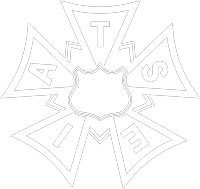When it comes to receiving medical care following an on-the-job injury, workers in California are finding that the deck is often stacked against them.
Across the state, hard-working men and women are having the medical care they need delayed, and sometimes flat out denied, due to an overly complicated review process that seems tilted toward insurance companies and employers rather than the injured workers it’s supposed to be helping.
The challenges facing injured workers was dramatized recently in a series of investigative reports from NBC Bay Area, which found dozens of San Jose firefighters summarily denied Work Comp benefits during the “utilization review” process, which is controlled by insurers and employers. In many cases – in San Jose and throughout the state – these denials can be over something as trivial as an unchecked box on a form.
California’s workers’ compensation system is an incredibly nuanced one, and while there’s certainly no “magic bullet” that would fix every grievance, Senate Bill 1160(Mendoza) would help ease the burden placed on injured workers, while ensuring timely delivery of the care needed to get these men and women back to work.
Specifically, SB 1160 institutes a 30-day treatment window in an accepted Workers’ Comp claim, so an injured worker can get the care they need (providing it conforms with medical guidelines) without being subject to “prospective” utilization review that can result in denial of care when it is most critically needed.
In addition to this important reform in the UR process, SB 1160 also calls for greater oversight over UR providers by requiring that they be reviewed the Division of Workers’ Compensation and accredited by an independent nonprofit organization by July 1, 2018. The measure also seeks to secure meaningful data about Workers’ Comp decisions by imposing stricter penalties against those claims administrators who refuse to satisfy their legal obligation to report workers’ injuries.
As with most legislative efforts around Workers’ Compensation, SB 1160 is the product of negotiations involving stakeholders on all sides of the issue. It reflects a clear consensus among these stakeholders that the UR process had thrown needless roadblocks in the paths of truly injured workers. In some cases, UR providers market their abilities to help employers control costs. As the NBC Bay Area reporting showed, the “bum’s rush” approach to UR is far from a cost-saver: Often, it can wind up in higher costs because of the frequent successful appeals.
For firefighters, this is an especially high priority. Our profession has a high risk of on-the-job injury, but firefighters didn’t get into this line of work to be sidelined. They want to be back on the lines as soon as possible. In this area, the needs of employees and employers converge.
California Professional Firefighters was proud to join the California Labor Federation in co-sponsoring SB 1160, which won bipartisan support in the Legislature and is now awaiting a signature from Gov. Jerry Brown.
We think the provisions in SB 1160 represent an important step in the ongoing effort to ensure a balanced and effective Workers’ Comp system that truly serves those for whom it was created – injured workers.
